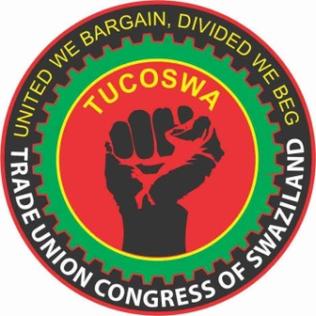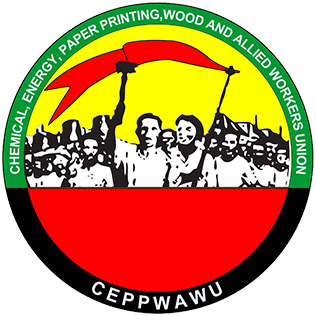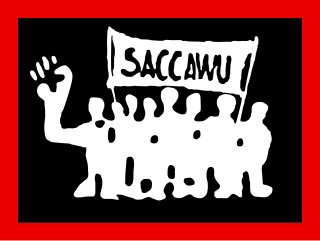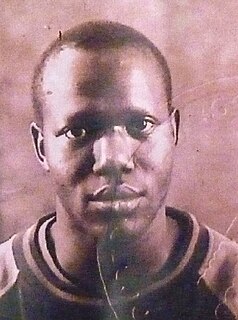 | |
| Full name | Swaziland Federation of Trade Unions |
|---|---|
| Founded | 1973 |
| Date dissolved | 2012 |
| Members | 40,000 |
| Affiliation | ITUC |
| Key people | Barnes Dlamini, president |
| Office location | Manzini, Swaziland |
| Country | Swaziland |
The Swaziland Federation of Trade Unions (SFTU) was a national trade union center in Swaziland. It was founded in 1983 and dissolved into the Trade Union Congress of Swaziland (TUCOSWA) in 2012.
A national trade union center is a federation or confederation of trade unions in a single country. Nearly every country in the world has a national trade union center, and many have more than one. When there is more than one national center, it is often because of ideological differences—in some cases long-standing historic differences. In some regions, such as the Nordic countries, different centers exist on a sectoral basis, for example for blue collar workers and professionals.

The Trade Union Congress of Swaziland (TUCOSWA) is a Swazi trade union federation.
Contents
The SFTU was involved in the campaign to win democratic and pluralist reforms in Swaziland, as well as the removal of restrictive labour legislation.
Members of the SFTU faced considerable opposition. In 1995 general secretary at the time, Jan Sithole was threatened with deportation, and later kidnapped and abandoned in the boot of a car. In 2002 he was publicly threatened by a Swazi senator and government delegate to the International Labour Organization.
Jan Sithole is a Swaziland trade union activist and politician. Sithole is president of the Swaziland Democratic Party (Swadepa), and was in October 2013 elected to the House of Assembly.

The International Labour Organization (ILO) is a United Nations agency whose mandate is to advance social justice and promote decent work by setting international labour standards. It was the first specialised agency of the UN. The ILO has 187 member states: 186 of the 193 UN member states plus the Cook Islands are members of the ILO. The tripartite structure is unique to the ILO where representatives from the government, employers and employees openly debate and create labour standards.
The death of Mxolisi Mbata, treasurer of the SFTU, was attributed to injuries he incurred as a result of a beating received from police after they broke up an SFTU general council meeting.
The Congress of South African Trade Unions (COSATU) was an outspoken and active supporter of the SFTU.

The Congress of South African Trade Unions (COSATU) is a trade union federation in South Africa. It was founded in 1985 and is the largest of the country's three main trade union federations, with 21 affiliated trade unions.
The SFTU was affiliated with the International Trade Union Confederation.

The International Trade Union Confederation is the world's largest trade union federation. It was formed on 1 November 2006, out of the merger of the International Confederation of Free Trade Unions (ICFTU) and the World Confederation of Labour (WCL). The Founding Congress of the ITUC was held in Vienna and was preceded by the dissolution congresses of both the ICFTU and the WCL. The ITUC has three main regional organizations – the Asia-Pacific Regional Organization, the American Regional Organization, and the African Regional Organization. The Trade Union Development Cooperation Network (TUDCN) is an initiative of the ITUC whose main objective is to bring the trade union perspective into international development policy debates and improve the coordination and effectiveness of trade union development cooperation activities.








